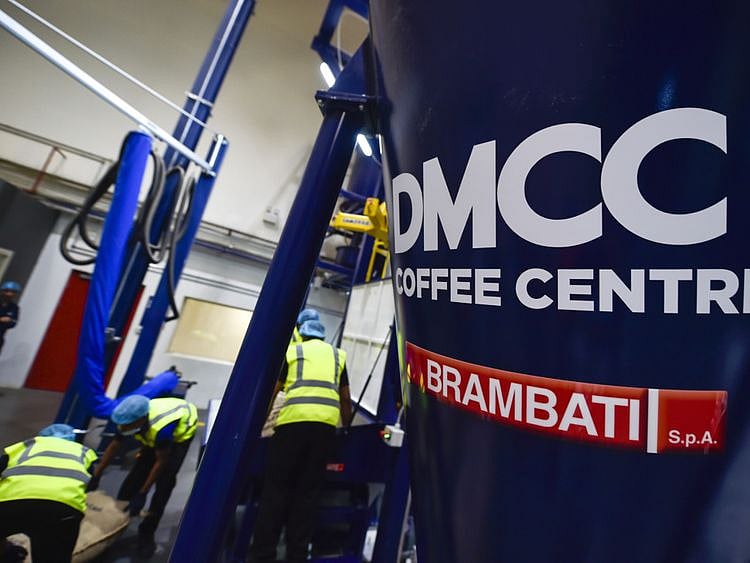Watch: Dubai’s DMCC is brewing strong growth out of its Tea and Coffee Centre
Scarcity of coffee beans from one supplier is an opportunity to find another

Dubai: The average coffee drinker in the UAE may not know – or care - about it as long as they get their hands on a cup of the fresh brew first thing in the morning.
But the fact remains that the global coffee bean industry is regularly facing one headwind or the other. All that the trade requires is to focus their energies elsewhere to keep regular supplies of the bean coming in – and meet the needs of consumers.
That’s according to a top official at DMCC (Dubai Multi Commodities Centre), which operates a coffee and tea trading hub within it.
“There has been no change in the volume of coffee imports and exports as far as we are concerned,” said Ahmed Bin Sulayem, Executive Chairman and CEO of DMCC. “Brazil faced issues with floods and weather changes and had to default (on supply). Companies’dependent on Brazilian coffee ended up defaulting.
“But this allows looking at other producers.”
Sulayem said similar situation prevailed when Egypt’s Suez Canal suffered a massive block from a vessel getting stuck in 2021. “There were similar talks about waiting a long time to get your coffee,” said Bin Sulayem.
The limited supply of robusta beans, a variety often used in instant coffee, espressos and ground blends sold at supermarkets, has forced coffee lovers in Europe (and other markets) to pay more for a cup
These markets were dependent exclusively on Brazilian coffee suppliers, with the South American country the world’s second-largest producer of Robusta coffee beans. Vietnam is the world’s biggest producer of the type.
“But it’s the Arabica variety (used in speciality coffees) that could suffer shortages if there are production or supply chain issues,” said Bin Sulayem.
Retail prices
A cup of coffee at a mid-to-high end cafe in Dubai can cost anywhere from Dh10 to Dh25 (before blends are added to jazz up the taste). Coffee prices Friday posted moderate gains, with Arabica climbing to a three-week high and Robusta at a 12-year high.
Consumers in the UAE have yet to feel the pinch as retail prices have remained largely stable as retailers have only passed on part of the recent round of increases.
“Such shortages only affect certain parts of the world, and these reports come largely from European markets,” said Saeed Alsuwaidi, the Director of Agri Commodities at DMCC.
“We have not had such challenges, and we are constantly working with our sister company DP World for new supplies if there are any shortages.”
Supply from source markets
Much of the coffee sold in the UAE goes to at least two other markets before making its way to the country. “For example, certain speciality coffee from Yemen goes to the UK for processing and packaging and then makes its way here,” said Alsuwaidi. “These affect the prices of coffee. That’s why we focus on bringing more coffee into the UAE directly from source markets.”
What about fuel prices?
Fluctuating fuel prices impact two aspects of the business – transportation cost and the cost of converting coffee from green beans into roasted.
“Since our facility is strategically located two minutes away from Jebel Ali Port, the cost of transportation from the port is low for us,” said Alsuwaidi.
The Coffee Centre in DMCC converts green beans into roasted coffee beans for its clients. “Moreover, our roasting machines (which can roast 200 kg of green coffee beans in an hour) are highly energy-efficient,” added Alsuwaidi.
Even train the baristas too
The DMCC Coffee Centre stored and processed more than 4,000 tonnes of green and roasted coffee from markets across Central and South America, Asia and Africa. The centre saw 57 new members in the year, demonstrating the significant value the facility adds to the global coffee supply chain. “Our core roasting, warehousing and packaging solutions are backed-up by additional offerings such as our barista training facility,” said Saeed Alsuwaidi, Director of Agri Commodities at DMCC. “We support the entire coffee industry from crop to cup.”
Network Links
GN StoreDownload our app
© Al Nisr Publishing LLC 2025. All rights reserved.